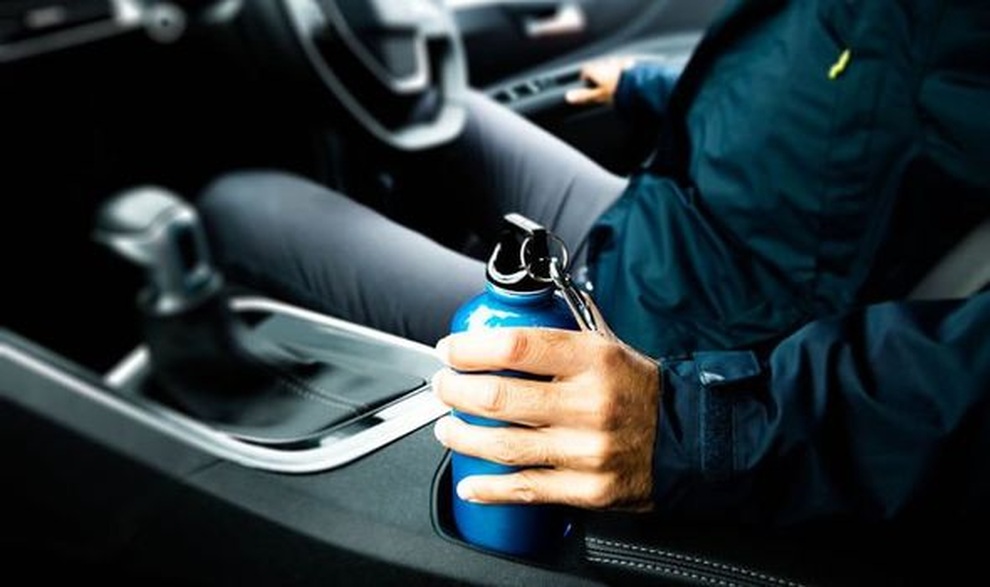Almost everyone knows that drinking alcohol before or during driving is very dangerous because the driver risks losing control of their behavior, leading to accidents. However, few people know the role of water.
At first listen, many people might think that the conclusion in the title of the article is exaggerated, but in reality, it is scientifically grounded.
Shocking statistics

Forgetting to drink water while driving is as dangerous as being drunk – 1 Since 2015, Leasing Options has compiled various information about the body’s water loss, from how much water the average person consumes daily to how quickly people become dehydrated, and what drivers understand about dehydration while driving. The results are quite surprising.
In the context of hot summer days arriving, let’s review these shocking statistics to better understand the danger of body dehydration while driving and some preventive measures, especially during long journeys.
The survey results show that up to 55% of drivers drink less water than recommended, with 43% admitting to drinking less during long drives.
How much water do we need?
According to a 2021 WaterLogic study, on average, a person in the UK only drinks 1.7 liters of water per day, much lower than the recommended 2.5 liters for men and 2 liters for women. To put it into perspective, you should drink about 10 large cups of water each day.
If driving for a long time (consecutively for several hours), it’s crucial to remember to take breaks frequently to replenish the body with water or simply carry some water to drink along the way.
Even mild dehydration can cause noticeable changes in our bodies. Studies have shown that just a 1% loss of water can affect body function, impair cognitive abilities, and impact mood.
Signs of dehydration include:
- Fatigue
- Dizziness, lightheadedness, or feeling faint
- Muscle cramps
- Lack of concentration
- Headaches
How dangerous is driving in a ‘parched throat’ state?
According to Science Direct, a mildly dehydrated person may experience enough lack of concentration to make driving mistakes. To reach this conclusion, a study was conducted with 11 adult males using a fixed driving simulator to mimic real driving conditions.
Each participant had three driving sessions: one to get accustomed and two two-hour sessions – one hydrated and one dehydrated. Sensors monitored brain activity, and cameras tracked the drivers. Accidents related to fatigue were excluded from the study.
The results showed that dehydrated drivers tended to make more minor errors, such as swerving, drifting lanes, or delayed braking. These were similar reactions observed in drivers under the influence of alcohol.
However, it’s essential to note that the small sample size could limit the conclusion. The study also indicated that even well-hydrated drivers sometimes made increased minor mistakes, though not as frequently as those who were dehydrated. It’s noteworthy that one participant was entirely disqualified from the study due to frequent sleepiness during the simulated experiment.
However, ultimately, dehydration can affect alertness, reflexes, mood, and overall health of the driver.
In many countries, drinking alcohol before or during driving is considered illegal. However, there are no similar regulations concerning driving in a dehydrated state.
These research findings are corroborated by Jacob Hatch, the author and founder of Hydration Anywhere. In an article, he affirmed the importance of replenishing the body with enough water and its correlation with driving behavior.
“Since driving demands high levels of concentration, you need to hydrate your body more than the amount you lose to avoid losing focus. If driving long distances in hot weather, ensure you have plenty of water in the car and plan multiple breaks to ensure you don’t neglect drinking water because you’re worried about having to find restrooms multiple times on the road. This will help you concentrate while driving, avoiding some common mistakes that account for up to 94% of car accidents,” Mr. Hatch said.












